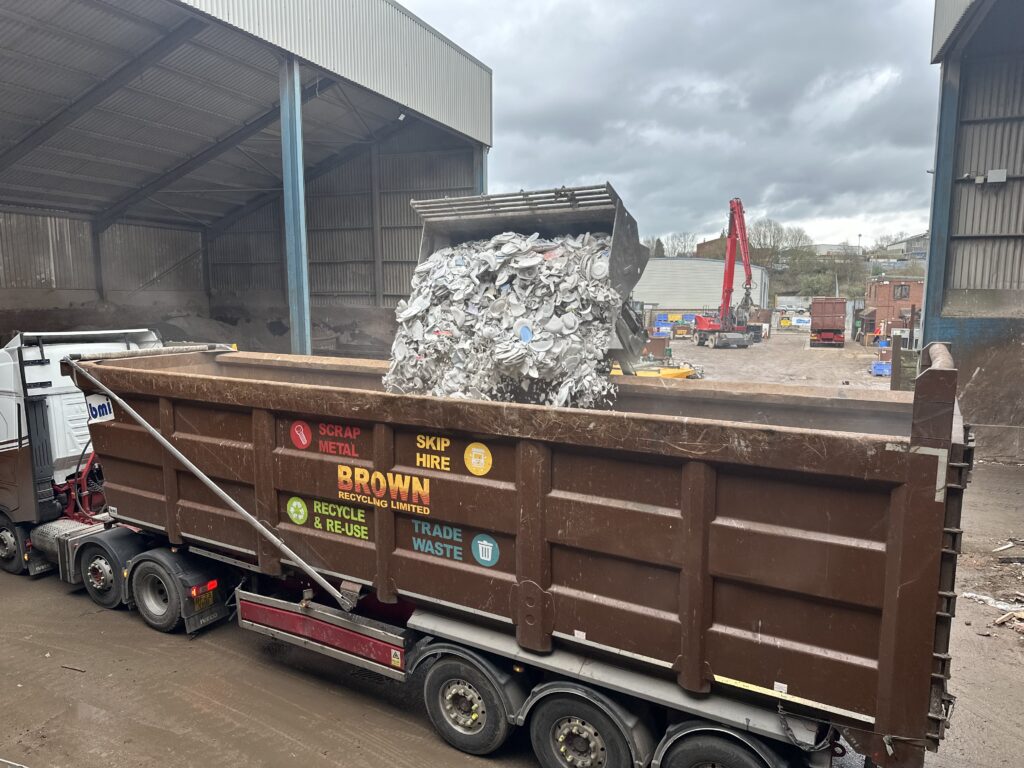The comments came as WRAP addressed the full effects of the current economic climate, credit crisis and the volatility of commodity markets on material being exported for reprocessing, with the issues of long-term demand and the quality of material highlighted as key issues.
In summarising the day's speakers, Mr Hathaway said: “Not being starry-eyed about it, there is going to be a lot uncertainty. Continued investment in this country may be effected by lack of financing in the short term.”
“But I think I am right in saying that it seems to be that the growth from developing countries is still going to be there and from the infrastructure developing in the UK, this is not going to go away entirely.”
“It is going to be the low quality end of the spectrum which is going to be squeezed out by an economic downturn,” he added.
Conference
The high-level conference – which had speakers from organisations including WRAP, the Environment Agency, Defra and Valpak – came shortly after a sudden decline in commodity prices, which has affected many recovered material sectors and most noticeably steel (see letsrecycle.com story), paper (see letsrecycle.com story) and plastics (see letsrecycle.com story).
Having been conceived as a conference on export markets, the event provided a timely dissection of the impact of global constraints on recovered materials and opened a forum for members of the waste and recycling industry to voice concerns to the Government-funded research body.
Liz Dixon Smith, programme manager for market knowledge at WRAP, said: “The banking system is of course in what some people believe is the greatest financial crisis since the Great Depression. The volatility has of course spread to the recovered materials market.”
“When we were planning this conference we had no idea how swiftly the economic climate was going to change,” she added.
Quality
The conference highlighted that, as companies looked to ride out the economic downturn, one of the main issues would be the increasing importance in the quality of materials being sent for reprocessing, both domestically and to export markets.

Not being starry-eyed about it, there is going to be a lot uncertainty
Roy Hathaway, Defra
Liz Goodwin, chief executive of WRAP, explained that quality was “one of the biggest issues of them all”, and drew attention to the fact that China had already, this year, raised the barrier for the type and quality of material it accepted.
Delegates heard how the economic situation meant that those businesses currently handling material of a lower quality would find it increasingly difficult to operate as the market attempted to procure good quality material alone.
Echoing the importance that would be placed on the quality of material, Ms Dixon Smith said: “The downturn in demand may lead to regulations being enforced more stringently than before, and material that was previously accepted is being rejected now.”
Ms Dixon Smith also claimed that WRAP did not foresee a decline in the amount of material being collected for reprocessing but, as collections grew, the economic climate could see less finance available to construct new, greater capacity material recycling facilities, which could be detrimental to the quality of material MRFs could produce.
Mr Hathaway expressed an air of disappointment that fewer waste management companies had signed up to the Recycling Registration Service (RSS) than hoped. The RSS is an audit service set up by the Environmental Services Association designed to ensure the quality of material coming out of MRFs through regular compliance testing.
He said: “Why have only nine MRFs out of over 100 signed up to the particular scheme? It is certainly something we would like to see more interest in from the industry as it is a very innovative idea.”
Research
The WRAP conference drew on a number of research projects, looking at topics ranging from the current export market, the determinants of prices for materials (with specific focus given to paper and plastics), the importance of relations with China and also the current state of regulation of material quality on both a domestic and export level.
Drawing on this information, speakers presented a broadly positive message which expressed that, despite the current financial constraints and commodity markets, the long-term picture would be decidedly more optimistic, with prices set to remain quite high by “historical standards”.
As exports retained a majority focus, Ms Dixon Smith asserted that China was currently not experiencing a recession anywhere near the level of the UK economy and, if anything, it was currently subject to a mere ‘slowdown' or a ‘pause' rather than a recession.
Speakers were therefore hopeful that the export market would remain strong over the short term despite the temporary lull, and commodity prices were simply coming down after an abnormally high period experienced throughout 2007 and early 2008.
WRAP was keen to express that it was still a time of uncertainty and, as Ms Dixon Smith said: “It is not a clear picture, and we don't have all the answers.”
SMEs
Although, the conference presented a consensus that the long-term picture was somewhat healthier, with the economy forecast to recover by 2012, some delegates expressed fears over the immediate short-term.
Research presented by Ms Dixon Smith indicated that SMEs had been particularly hit by the economic downturn, with a third of those which WRAP had spoken to explaining that they had found it harder than ever to access finance.
Focusing more on the next six months to a year, questions were raised over the problems that would be faced by smaller businesses, which did not have the security of long-term contracts to depend on, and how they would be able to continue to operate if the market took another turn or if the volatility in the marketplace took longer to correct than predicated.
Lessons
WRAP welcomed suggestions from those present as to how to best combat the problems posed by the current market situation.
In the short-term, Alan Potter, director of environmental consultancy Beyond Waste, suggested that WRAP should form some sort of strategy response to safeguard against this in the future.
Mike Jefferson, commercial director of recycling firm and producer compliance schme Valpak, said that it would be important for companies to try and spread the risk with regards to trade and also to choose export partners carefully.
Steve Creed, business growth manager at WRAP, added that it was important to learn lessons going forward, which perhaps had not been learned when the market suffered in 1996, and the companies needed to look to establish longer term contracts and not just take profits when things are going well but safeguard for when they aren't.
He said: “Let's try and learn our lesson on this one with long-term contracts and a bit more risk taking spread across. How can you share the risk across those boundaries rather than taking the profits when things go up?”












Subscribe for free